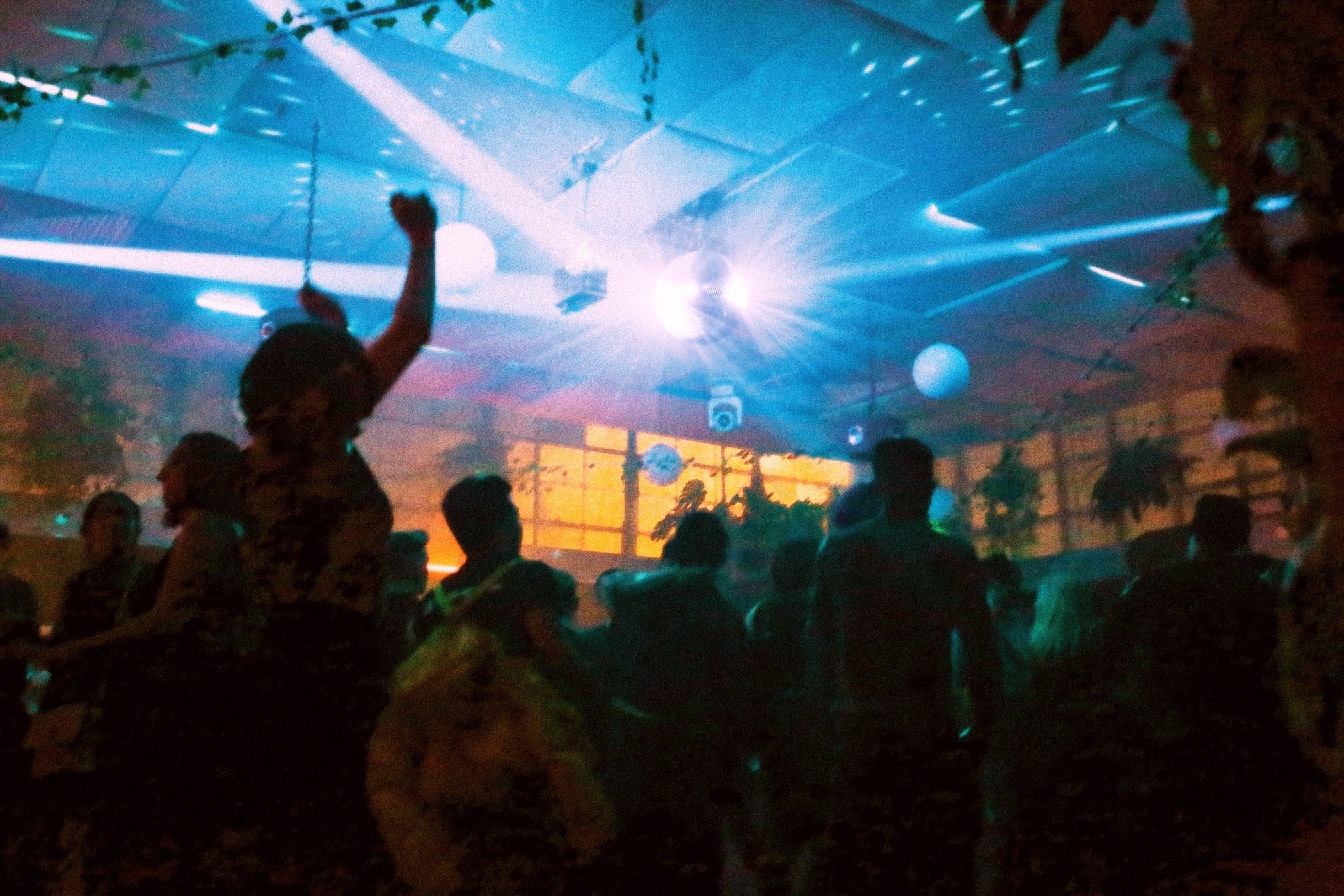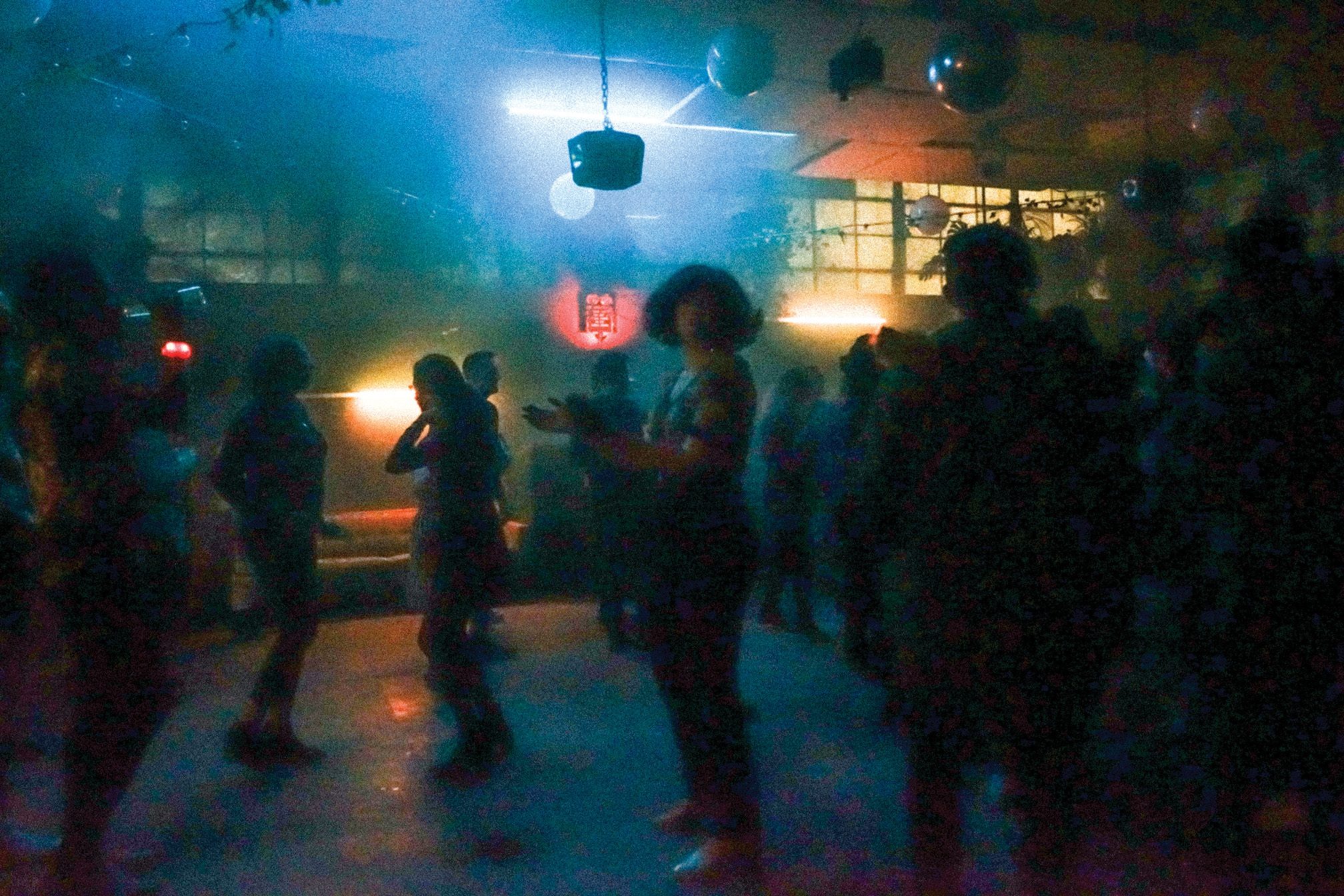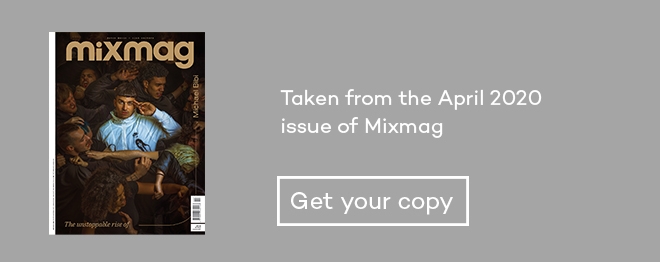 Scene reports
Scene reports
Dweller festival is reclaiming techno’s black heritage
The New York festival is a "leader for change" in dance music
The point of Dweller festival, a series of daytime and night events held across multiple Brooklyn venues at the height of Black History Month, is to educate: to remind people that despite techno’s worldwide success and at times Eurocentric bias, the sound grew out of black communities in the US. “It’s kind of a duty to make that known to everybody,” says curator (and Discwoman co-founder) Frankie Decaiza Hutchinson, revealing that she herself had been unaware of the history. “[There’s] a lot of shame in people not knowing enough about this music.”
The festival’s name is inspired by an act vital to that history: Detroit electro-techno pioneers Drexciya. Their 1992 EP, ‘Deep Sea Dweller’ saw James Stinson and Gerald Donald create an imaginative afro-futuristic mythology/alternative history in which pregnant African slave women thrown overboard during their transatlantic deportation formed a whole new race of underwater sea-dwellers.
Just as Drexciya created alternative realities and narratives around the black experience, the second annual Dweller Festival aims to facilitate spaces for those often left behind. Taking over clubs and warehouses across the grid-pattern streets, the five-day festival gives NYC-based collectives the opportunity to put on events that all contribute in their own ways to the greater concept.
Read this next: Celebrating Black History: Detroit techno icons
After a daytime panel event exploring the changing narratives and notions of ‘ownership’ around techno (and the importance of increased representation throughout the industry, especially more black club bookers), Kush Jones and DJ Swisha, both DJs from Brooklyn’s Half Moon collective, kick things off, serving up a b2b set at classic Bushwick venue, Bossa Nova Civic Club. With a focus on music ranging from footwork to trap, the club is left in its natural, dimly lit state, a set of old-school style vinyl booths leading to a square-shaped dance space where attendees greet each other with hugs and root for their fellow artists. With a capacity of just 140, it’s a good example of the festival’s tight-knit, communal atmosphere.
Mixmag returns to Bossa Nova the next night as it fills to the brim for a Like That Records takeover. Ase Manual, the founder of Like That and a self-proclaimed afro-futurist, is clear on the importance of the festival: “you know how there’s Chinese New Year? Well, to me Dweller is a week-long celebration of Black New Year.”
Read this next: Adab's afrofuturism inspires hope for a better future
In a dark, dingy, steam-filled club, DJ Nativesun contributes to a high-energy, often noise-heavy experience, filling the floor with speedy remixes of tracks like Ludacris’ ‘Saturday’ and Amerie and Rich Harrison’s ‘One Thing’. Neon Knuckles later appears in a silver wig, backlit by a multi-coloured Dweller sign, to spin relaxed melodies that nevertheless keep up the tempo. Knowing that ‘Black New Year’ still has three more days to go, many attendees head out early to prepare for Friday’s celebrations.

Bringing us back into the general idea of the Drexciyan mythology, Friday’s Planetarium event delves into live performance art and healing sounds before ALKHEMY and Discwoman continue the night’s festivities with a proper underground party in an outwardly unassuming venue featuring the likes of Adrestia, DJ Assault, FBK, SHYBOI, Xiorro and more.
Christina Hernandez (Adrestia) and Felton Cortijo (Xiorro) are keen to point out that Dweller’s ethos has the potential to have a wide influence on the music world. “Dweller deepens the stake in the ground for Brooklyn, as a leader for change in the US and beyond,” says Christina.
It’s also a showcase for some incredible veteran artists – particularly when ghettotech legend DJ Assault steps up front and centre of the huge warehouse space in undertstated and T-shirt and cap, and lays down a classic mic performance to background of booty bass, showing off decades of scratching skills against the pulsing, (and at times, jarring) soundsystem. Front to back, it’s shoulder-to-shoulder on the dancefloor.
The geographical sprawl of the events and the large number of artists make for an at times chaotic few days, but Hutchinson says this is intentional: it forces people to pick the events they connect to most. It’s also nearly impossible to experience everything, leaving attendees eager for more in the next year’s edition.
This idea holds true on Saturday night: three more simultaneous events, each with unmissable talent. But we’ve made our choice. At Nowadays there’s always a space for everyone, whether on the dancefloor, in the comfy booths, outside in the smoking area around its trio of brightly blooming bonfires or in the pillow-filled, cuddle-puddled tent. Mixmag starts inside as Brooklyn-based sister duo Analog Soul begin the night with a true Chicago house set featuring acid cuts and a ‘Blue Monday’ remix. Later, near one of the bonfires, we meet a couple of women from Berlin who tell us about their love of NYC’s scene, going so far as to state that Berlin has gone too mainstream in the world of techno – another reason, if reasons were needed, for the NYC scene not to lose sight of its roots – or its melting-pot diversity.
Read this next: Intense rave spirit: AceMoMa are injecting raw energy onto the dancefloor
Back inside – and as if on cue – DJ Stingray, in his usual black ski mask, steps up to bridge two worlds, combining his Detroit roots with Berlin influences from the city that’s now his home. His continuously building blend of rolling beats from electro to deep industrial techno has tops off on the dancefloor, peaking with the likes of D.Dan’s ‘Dangstuh’ and K-1’s ‘Back From The Future’.
On Sunday there are two parties, at Nowadays and Bossa Nova, for those who have the stamina. But well before its final day, the festival achieves its goal in providing an inclusive space for both black electronic artists and clubgoers – and a worthy tribute to an essential part of black history. Looking around at Dweller in full flow, we’re reminded of black Congresswoman Shirley Chisholm’s maxim: “If they don’t give you a seat at the table, bring a folding chair.”
Dev White is a freelance writer, follow her on Twitter
Read this next: Get the best of Mixmag direct to your Facebook DMs



